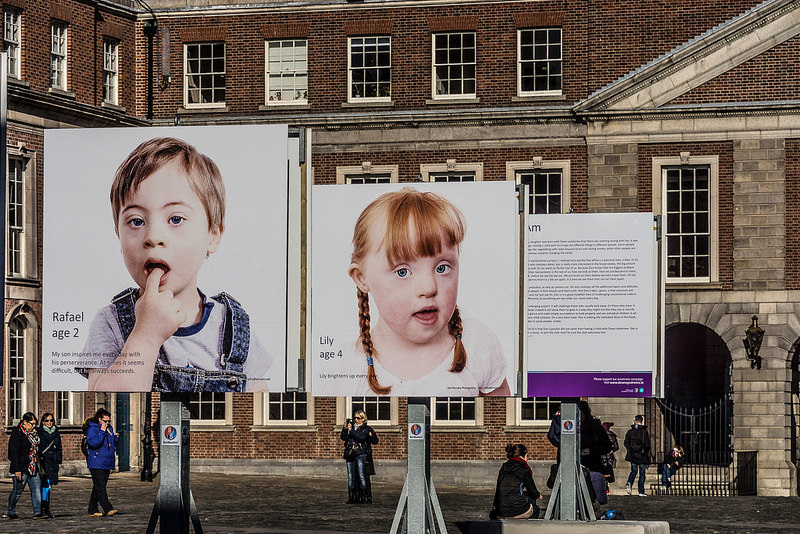| In England, where doctors appear to be a bit more provocative than in the United States, an argument has erupted over how to apply a cost-benefit analysis to human life. As the Daily Mail reported earlier this month, physicians at the Royal College of Obstetricians and Gynecologists suggested new tests to determine whether pregnant women are carrying babies with Down Syndrome should come with an economic analysis “that includes the lifetime costs of caring for children and adults” with the condition. |
| | The idea emerged as part of a process to decide whether to restrict the pre-natal test to high-risk women or to provide it for all, the thought being that mothers might wish to abort such babies. To be sure, the non-invasive tests are available in the United States, as well. The private insurance-based system here, however, keeps such difficult questions out of the public square, but that doesn’t mean they aren’t being asked. Insurance companies decide whether to cover the costs of these tests based on how much money it will save them by not having to deal with other medical issues down the road. That cold analysis may be tempered by the fact that mothers (and often couples) are free to make the ultimate decision whether to carry such a baby to term. But if physicians were to present them with a financial analysis as part of that process, the information would be incomplete, at the least, and also irrelevant, according to many parents who are raising such children. This isn’t an issue confined to Down Syndrome. The more science can tell us about the genetic makeup of unborn children, the more choices will revolve around the definition of normal, and whether only people who meet that definition should enter the world. Are you normal? Can you prove it? When measuring the value of someone with Down Syndrome, it may be best to go to a source with the most at stake. The website vice.com did so, publishing a frank question-and-answer session with Jonas Sippel, a successful stage actor in Germany who happens to have the condition. Among the many questions posed was this: “Is it annoying that you can recognize Down syndrome just by looking at someone's face?” Sippel’s answer speaks volumes about the essence of this debate. “The fact that you can see it isn't so bad,” he said. “But when someone tries to reduce me to my Down Syndrome, that annoys me.” None of us likes to be reduced to our physical attributes, our perceived lack of ability or any other single trait at the expense of everything else we’re capable of adding to the life around us. That is at the heart of the struggle for equality and against discrimination. But civil rights don’t always make it to the consultation room when doctors pass the news of a possible genetic abnormality to expectant parents. No one knows for sure how many expectant mothers in the United States choose to abort babies diagnosed with Down Syndrome. Some experts say it may be about two-thirds. Meanwhile, as The Atlantic reported two years ago, we’re rapidly entering the age when folks can design ideal babies. This can range from couples using computer programs to compare genetic profiles before getting married to the promise of a new procedure that would allow doctors to transfer the mitochondrial DNA from the egg of one woman to another. Generally speaking, these are things the rich do, which raises questions about future class distinctions between “perfect” people and the rest of us. The Atlantic quoted sociologist Charis Thompson as saying that, while the aim of new tests and procedures seems to be to eliminate suffering, “… there is slippage.” “The more you can test for and screen out, the more people do.” I’m not going to pretend raising a child with disabilities is without challenges, difficulties and expense. Those I have known in such situations can attest to the troubles. But they also almost always attest to the things their children have taught them; a list that often includes unconditional love, patience and joy. What, exactly, is the monetary value of those things? |


 RSS Feed
RSS Feed

